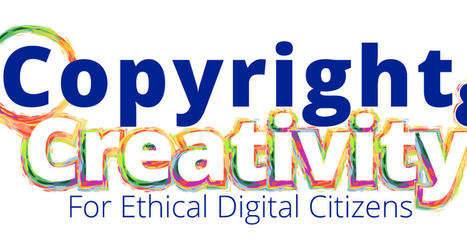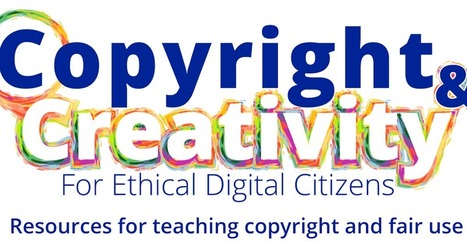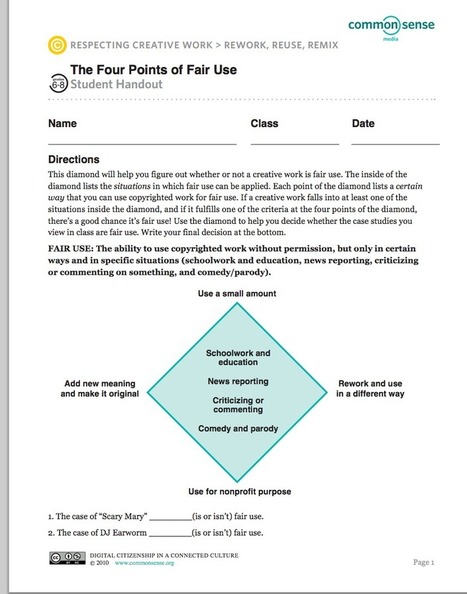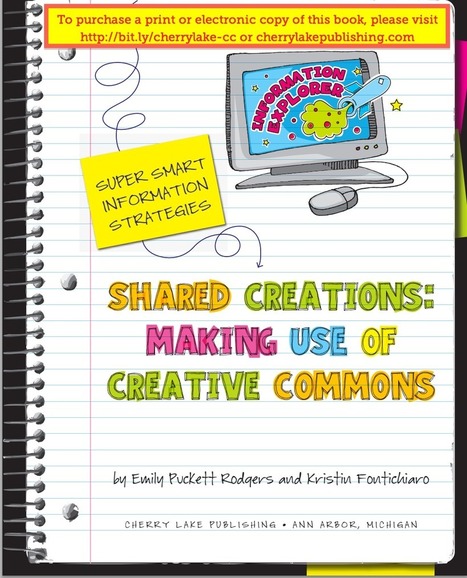An important part of responsible digital citizenship, according to ISTE Standards for Students, is the respect for "the rights and obligations of using and sharing intellectual property". Students need to learn that accessibility of information online does not necessarily make it copyright free. Unfortunately, I myself have learned this the hard way. I believe, the best and safest way to deal with the issue of copyrights online is to always seek permission from content owners.
Research and publish the best content.
Get Started for FREE
Sign up with Facebook Sign up with X
I don't have a Facebook or a X account
Already have an account: Login
Literacy in a digital education world and peripheral issues.
Curated by
Elizabeth E Charles
 Your new post is loading... Your new post is loading...
 Your new post is loading... Your new post is loading...
|
|















